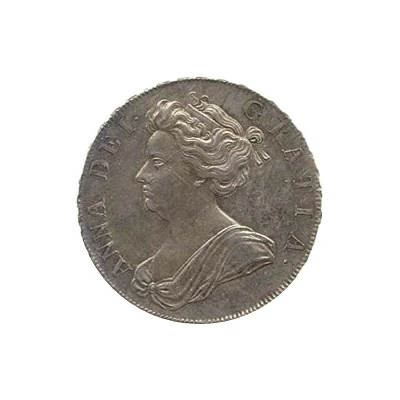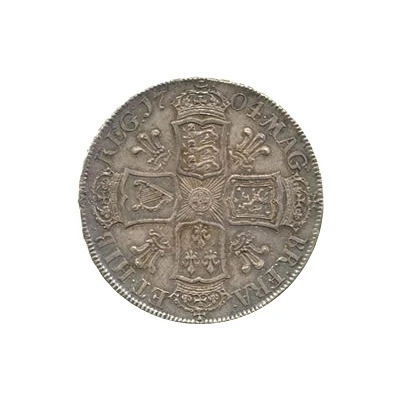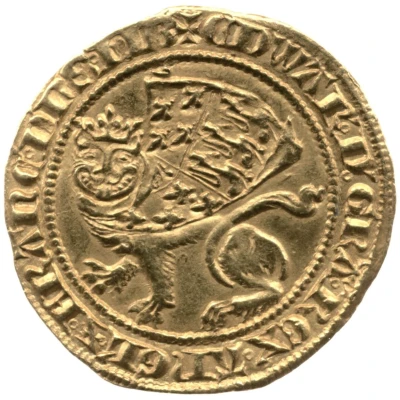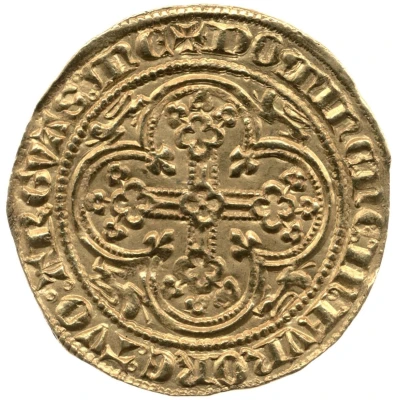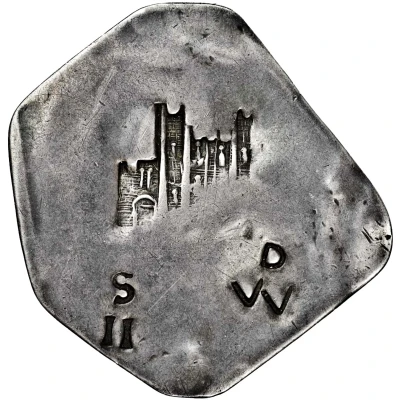


© Spink and Son
2 Shillings 10 Pence - Charles I Scarborough siege coinage ND
| Silver | 13.32 g | - |
| Issuer | England (United Kingdom, British Overseas Territories and Crown Dependencies) |
|---|---|
| King | Charles I (1625-1649) |
| Type | Standard circulation coin |
| Years | 1644-1645 |
| Value | 2 Shillings 10 Pence (17⁄120) |
| Currency | Pound sterling (1158-1970) |
| Composition | Silver |
| Weight | 13.32 g |
| Shape | Pentagonal (5-sided) |
| Demonetized | Yes |
| Updated | 2024-10-09 |
| Numista | N#147135 |
|---|---|
| Rarity index | 100% |
Reverse
(uniface)
Comment
Scarborough Castle, held by Sir Hugh Cholmondeley for King Charles, surrendered to Sir Mathew Bointon on July 22 1645 after being besieged for 12 months. During the siege the need for coin to pay the defenders, as at other Royalist locations under duress, was met by using silver plate to make coins. Scarborough siege pieces are unusual for their irregular shape and the range of unusual denominations, and all are uniface. The whole production has an air of improvisation about it with the silver plate being cut into irregular fragments for which a 'coinage' value was then determined based on the weight. The coin was stamped with an image of Scarborough Castle and marked with a value using a set of puncheons.Interesting fact
One interesting fact about the 2 Shillings 10 Pence - Charles I (Scarborough siege coinage) ND (1644-1645) coin is that it was minted during the English Civil War, specifically during the Siege of Scarborough in 1644-1645. The coin was issued by the royalist forces loyal to King Charles I, who were besieged by the parliamentarian forces in the town of Scarborough. The coin was minted to help finance the king's military efforts and is considered a rare and valuable collector's item today.
